Biden and Harris meet virtually with group of bipartisan governors
From CNN’s Chris Boyette, Betsy Klein and Dan Merica
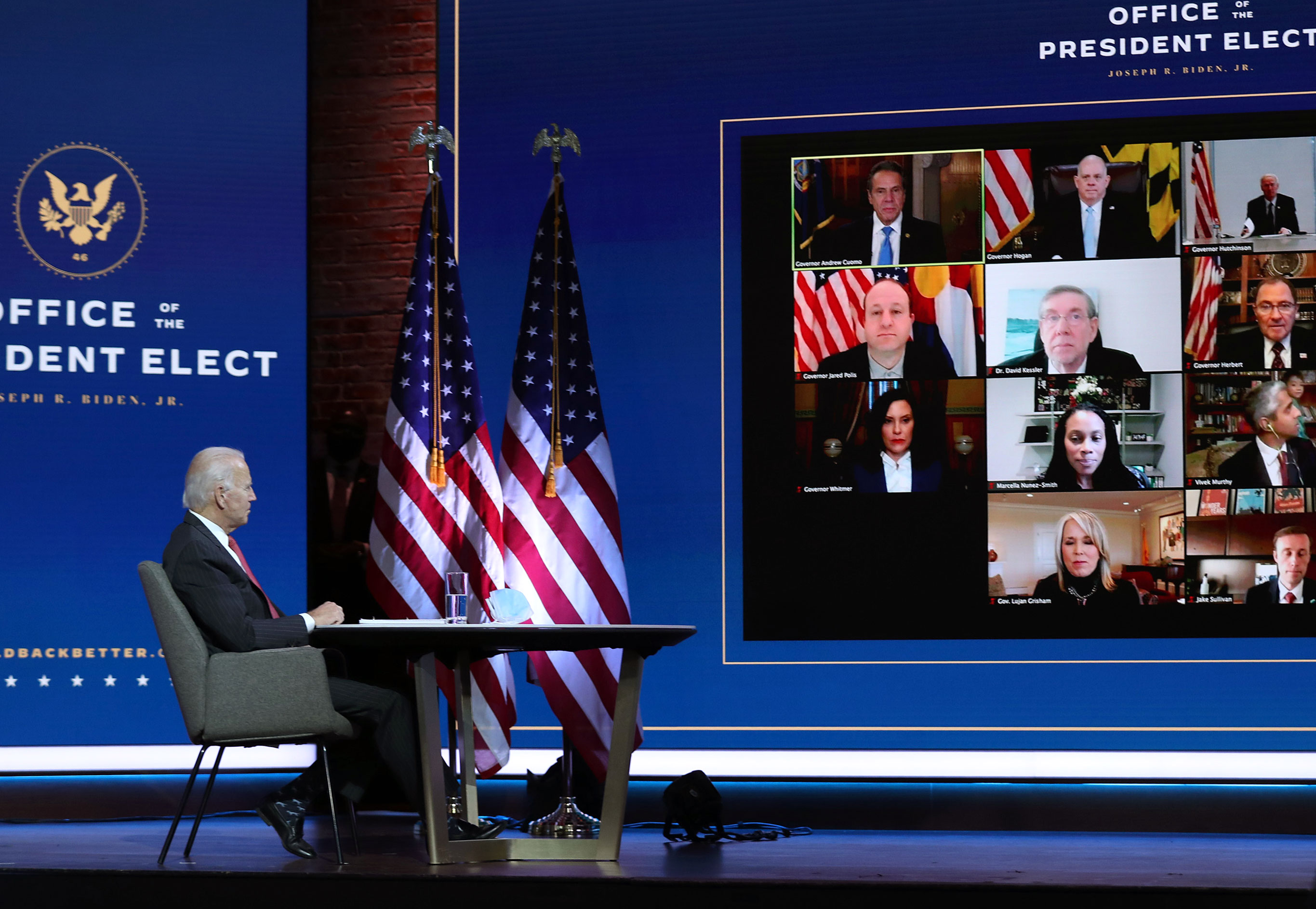
President-elect Joe Biden and Vice President-elect Kamala Harris are virtually meeting with the National Governors Association’s executive committee in Wilmington, Delaware.
The meeting is expected to focus on the coronavirus pandemic. Biden and Harris will deliver remarks after the meeting.
Members of the executive committee group include:
- New York Gov. Andrew Cuomo
- Arkansas Gov. Asa Hutchinson
- Alabama Gov. Kay Ivey
- Colorado Gov. Jared Polis
- Maryland Gov. Larry Hogan
- Massachusetts Gov. Charlie Baker
- Michigan Gov. Gretchen Whitmer
- New Mexico Gov. Michelle Lujan Grisham
- Utah Gov. Gary Herbert
Today’s meeting comes as the Trump administration continues to block the Biden transition. Biden’s incoming White House chief of staff Ron Klain said Sunday that the President-elect’s team had been unable to talk to current top health officials like Dr. Anthony Fauci about the pandemic owing to Trump’s refusal to trigger ascertainment— the formal process of opening a transition to a new administration.
More than 250,000 Americans have so far died of the virus — a higher death toll than any other country.
Trump invites GOP lawmakers from Michigan to White House
From CNN’s Kevin Liptak
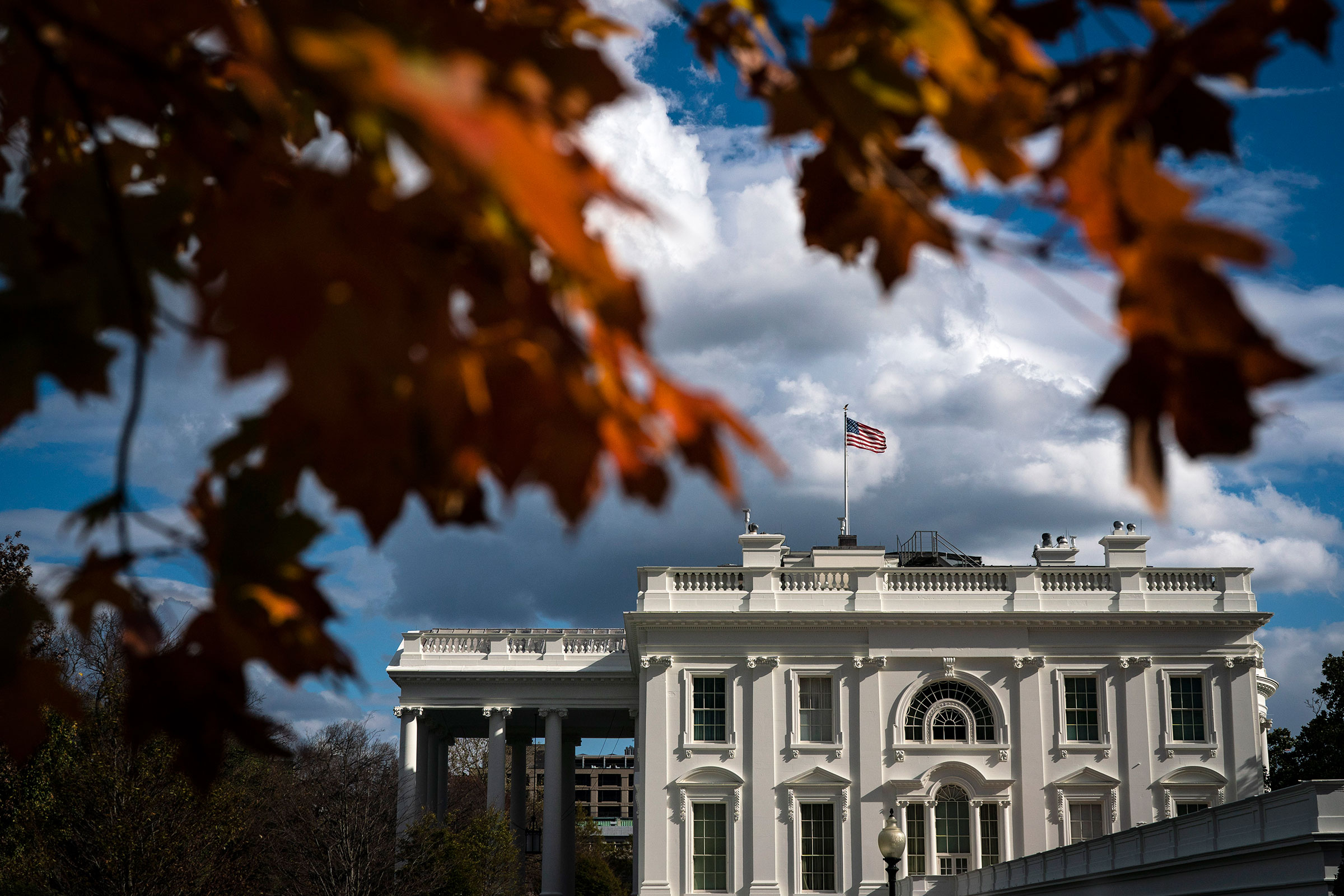
President Trump has invited Republican state lawmakers from Michigan to the White House on Friday, according to a person familiar with the matter, as he works to interfere in the results of the election.
It’s not clear at this point how many lawmakers will come. Trump extended the invitation on Thursday morning by calling the state senate’s Republican majority leader.
Nor was it immediately clear what Trump’s message would be to the lawmakers. The person familiar also confirmed Trump spoke Tuesday evening with two Wayne County canvass board members to offer his support as they went back and forth on voting to certify election results.
Biden’s plans for mask mandates nationwide will be an early test of his presidency
From CNN’s Michael Warren, Dan Merica and Tara Subramaniam
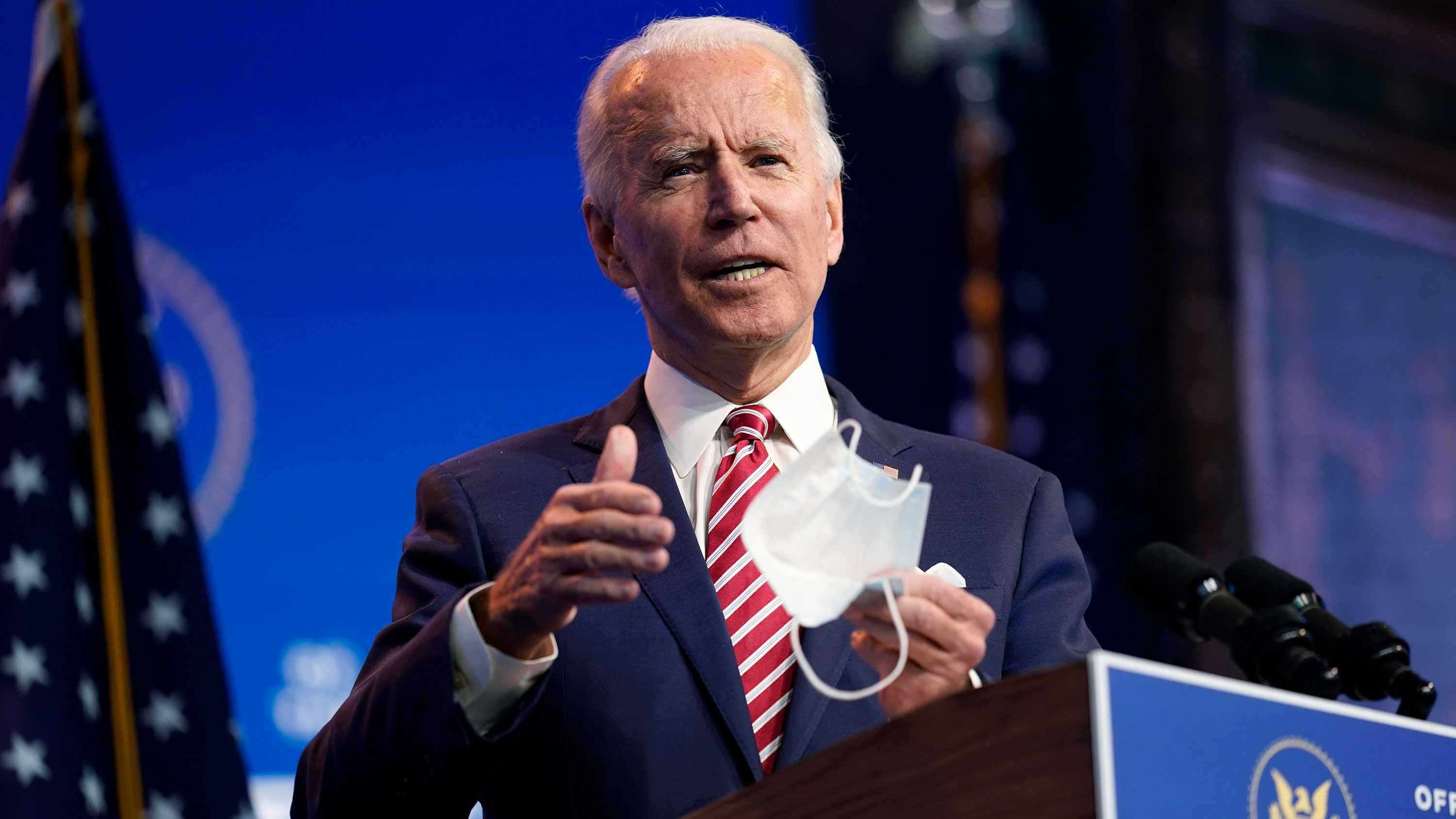
President-elect Joe Biden’s team is discussing ways to persuade resistant Republican governors to get on board with mandating masks to stop the spread of Covid-19, according to sources familiar with those conversations.
The Biden transition team is treading lightly so far, saying little about how the incoming administration plans to address what is likely to be among the first tests of Biden’s ability to bridge political divides and find consensus.
Before engaging with any of the 13 Republican governors who have yet to pass statewide mask mandates, sources say the Biden team is reaching out to more amenable governors — including holding staff level meetings with Republican Larry Hogan of Maryland, who was an early adopter of mask mandates and other preventive measures.
Another option under consideration is using economic incentives, which would likely be implemented in an upcoming spending bill, to induce mask mandates, according to one person familiar with the plans being discussed inside Biden’s transition team.
No matter what approach Biden and his team take, experts say the reality will likely be something of a patchwork set of rules and guidelines across thousands of localities that will rely as much on social pressure as legal mandates to enforce.
“I think the issue of a nationwide mandate is going to be tricky,” said Dr. Marcus Plescia, the chief medical officer at the Association of State and Territorial Health officials. “With a lot of these public health laws and regulations, we really depend on social enforcement.”
Biden has acknowledged that his authority to actually enforce a mask mandate is limited and that he will rely heavily on the cooperation of state and local leaders. With Covid raging across much of the country, and the death count surpassing 250,000, Biden’s most effective use of presidential power may be as a means of persuasion to set the tone for behavior.
Read more here.
Here’s what happens when states certify their presidential election results
From CNN’s Marshall Cohen and Kelly Mena
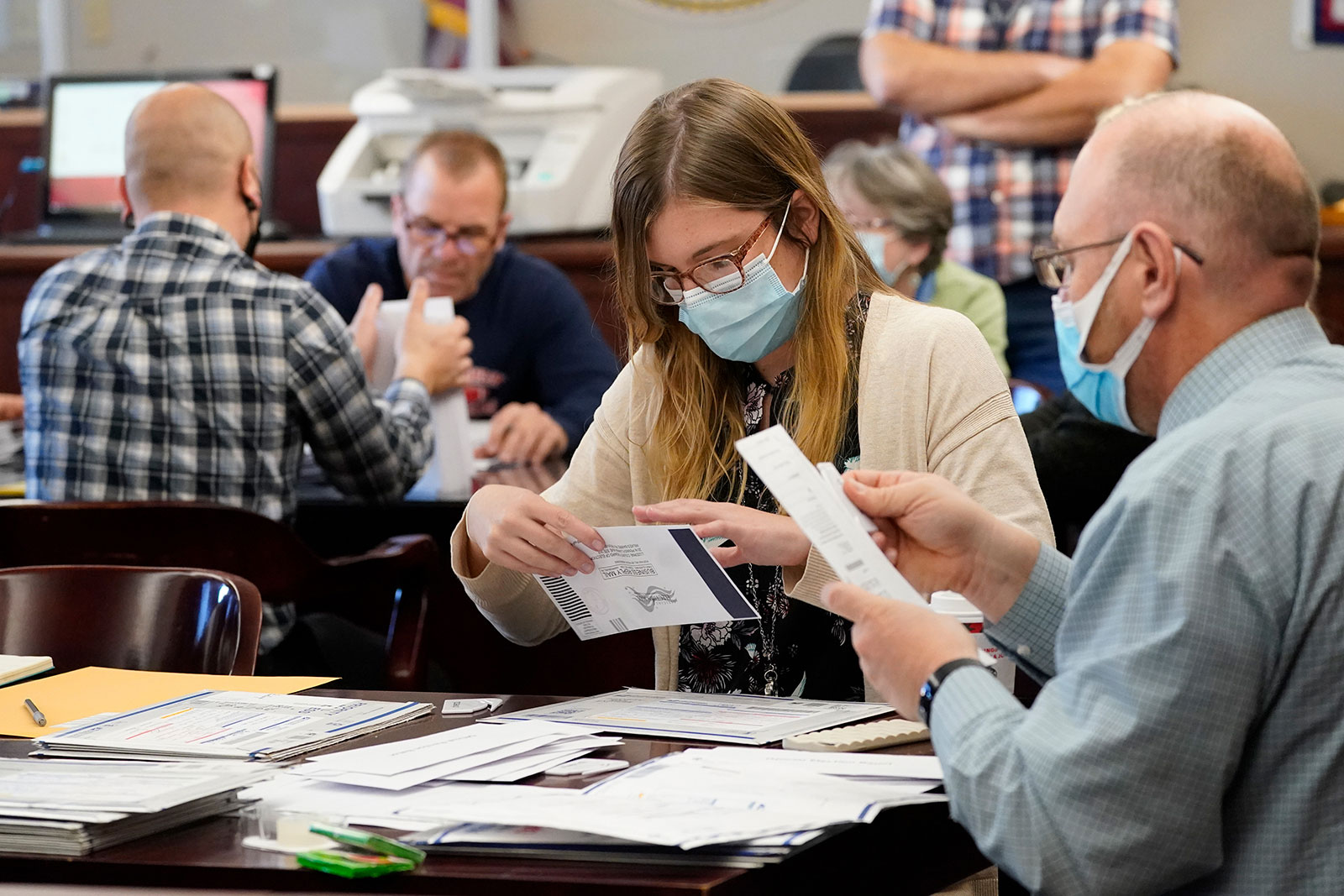
Though states finalize and certify their results after every election, the process of confirming the winner of the general election has taken on new significance this year, as President Trump continues to contest his loss.
Here are key things to know about the process — and why it matters more than ever this year:
- Starting a week after Election Day, states began to certify their results after reviewing disputed ballots, conducting post-election audits, and double-checking numbers for accuracy. Federal, state, and local election officials from both political parties have said there was no widespread fraud or irregularities in the 2020 election.
- Certifying election results is typically a formality, but the arcane process has become the latest battleground in Trump’s longshot attempt to cling onto power. His campaign is trying to block or delay certification in key states in hopes of overturning Biden’s victory through the Electoral College.
- The idea is that if there’s no certification, then Republican-run state legislatures in a few key states could appoint pro-Trump slates of presidential electors, even though Biden won the popular vote in their state. Senior GOP lawmakers in key states like Pennsylvania and Wisconsin have already rejected this idea, and some states have laws explicitly ruling out this option.
- Pennsylvania House Majority Leader Kerry Benninghoff, a Republican, told reporters earlier this month that lawmakers don’t have the legal grounds to appoint their own electors. While a spokesperson for Pennsylvania Senate Majority Leader Jake Corman, another Republican, also poured cold water on the idea of appointing electors that didn’t support the winner of the statewide vote.
- The scheme essentially becomes impossible if key states certify their presidential results before Dec. 8, which is known as a “safe harbor” deadline under federal law.
- When Congress tallies the electoral votes in January, it must accept electors that were certified before the deadline. If a state missed the deadline, then Congress can consider disputed slates of electors.
Read more here.
Wisconsin elections commission approves recount for Milwaukee and Dane counties
From CNN’s Casey Tolan and Brad Parks

The Wisconsin Elections Commission has officially ordered a partial recount of votes in the presidential race after receiving a $3 million payment from the Trump campaign, according to a release from the election commission.
The commission’s order requires the boards of canvassers in Dane and Milwaukee counties to convene by 9 a.m. CT on Saturday, and to complete the recount by Tuesday, Dec. 1.
President Trump’s campaign filed a petition Wednesday asking for the two county-level recounts. These two counties are Democratic strongholds, home to many Black and college-age voters in Milwaukee and Madison.
CNN projected that President-elect Joe Biden won the state of Wisconsin. He is currently ahead of Trump by more than 20,000 votes, which even some prominent Republicans acknowledge is likely an insurmountable lead.
In a meeting on Zoom, the six-member elections commission, which is divided between three Democrats and three Republicans, previewed some of the arguments that could be aired during the recount over the next two weeks.
Republican members of the commission accused Democratic officials in the two counties of trying to use coronavirus safety guidelines as an excuse to make it harder for Trump’s campaign to observe recount proceedings.
“Safety cannot mean that they can’t have observers, that they can’t have them close,” Republican Dean Knudson said. “The right to view what’s going on is more important than any kind of local safety command that they’ve come up with.”
The commission did unanimously approve public safety guidelines suggesting counties use measures like plexiglass and social distancing during the recount.
Democratic members pushed for the commission to update the state’s recount manual to not require recount canvassing boards to review absentee ballot requests if there was no discrepancy in the number of absentee ballots. The commission’s nonpartisan staff said that that change would more accurately reflect state statutes. But the Republican members opposed the change, leading to a deadlock.
Democratic commission member Mark Thomsen blasted the Trump campaign’s recount petition for singling out Milwaukee and Dane counties, noting that the petition alleged statewide irregularities without evidence but only requested a recount in two counties.
“I have never felt so attacked, to say that it’s all unfair and then just pick out our county,” he said.
President Trump’s participation in G20 remains unclear
From CNN’s Kevin Liptak
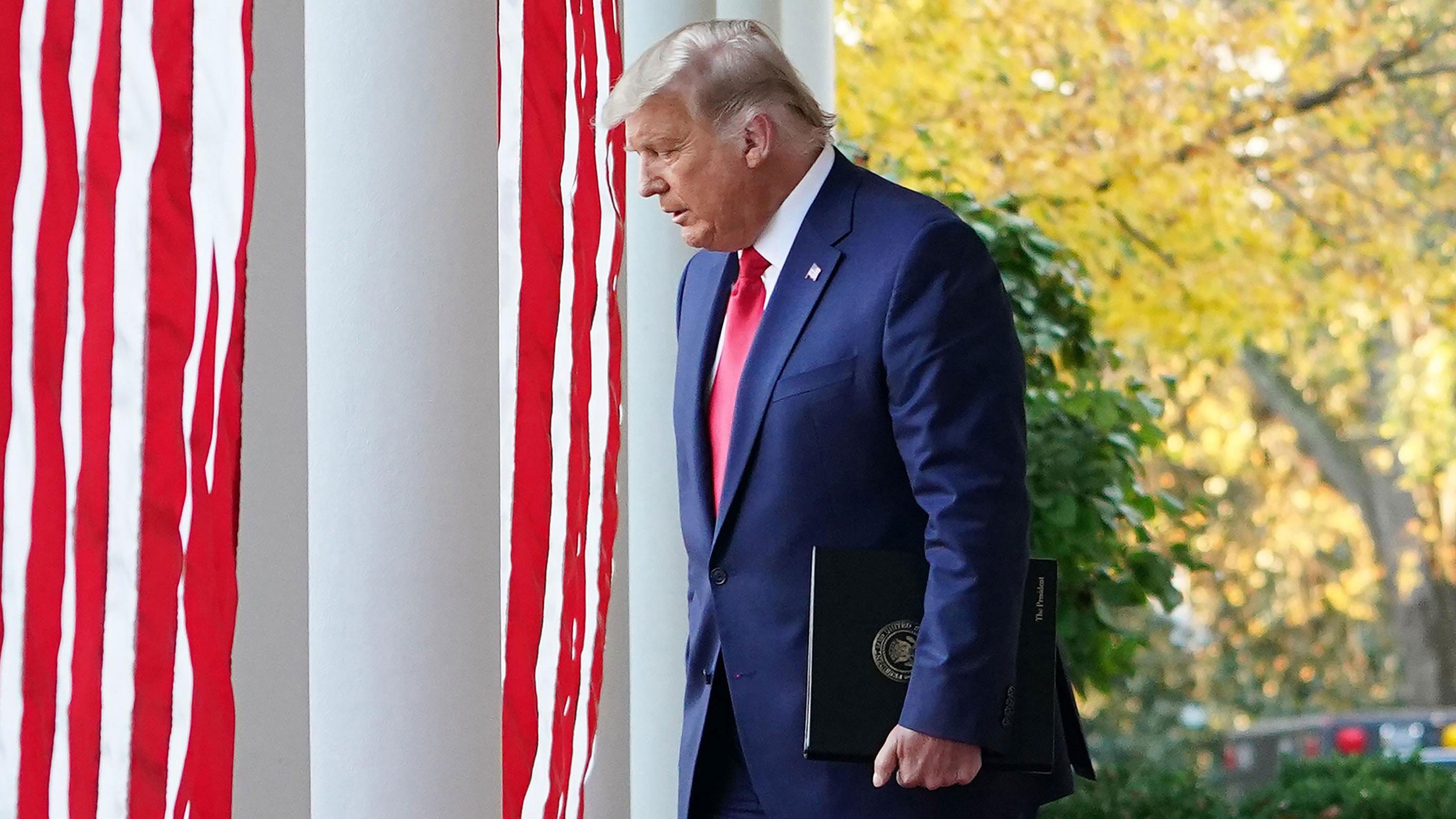
The White House will not say whether President Trump plans to participate in this weekend’s virtual G20 summit hosted by Saudi Arabia, and Trump’s aides have not told the meeting’s organizers whether to expect the President to appear, according to an official familiar with the matter.
Trump skipped a pair of Asian summits earlier this month, tasking national security adviser Robert O’Brien with representing him instead. Aides have tentatively planned for him to participate in the APEC summit on Friday, which will also be held virtually.
But it remains unknown whether Trump will appear at the G20, the large gathering of industrialized nations. Trump would be the first US president not to appear at a G20 since the group began holding leaders’ summits in 2008.
Secretary of State Mike Pompeo will be in Saudi Arabia during the summit.
A person familiar with the matter said Trump hasn’t said yet whether he wants to participate. In the past, Trump has questioned the value of international summits, which feature lengthy speeches and where he must share the spotlight with other leaders.
Separately, US officials say there are no plans now for Trump to convene a G7 summit before his term ends. The US was the president of the G7 this year, and had been planning an on-and-off summit since last spring, when Trump said he would invite Russia to participate.
Eventually the meeting was postponed because of coronavirus, and Trump suggested he might schedule it after the election.
But no efforts have been made to arrange the summit and officials said it did not appear likely the US would host the meeting before the G7 presidency is handed over to the United Kingdom on Jan. 1.
Trump campaign drops federal lawsuit in Michigan
From CNN’s Jessica Schneider
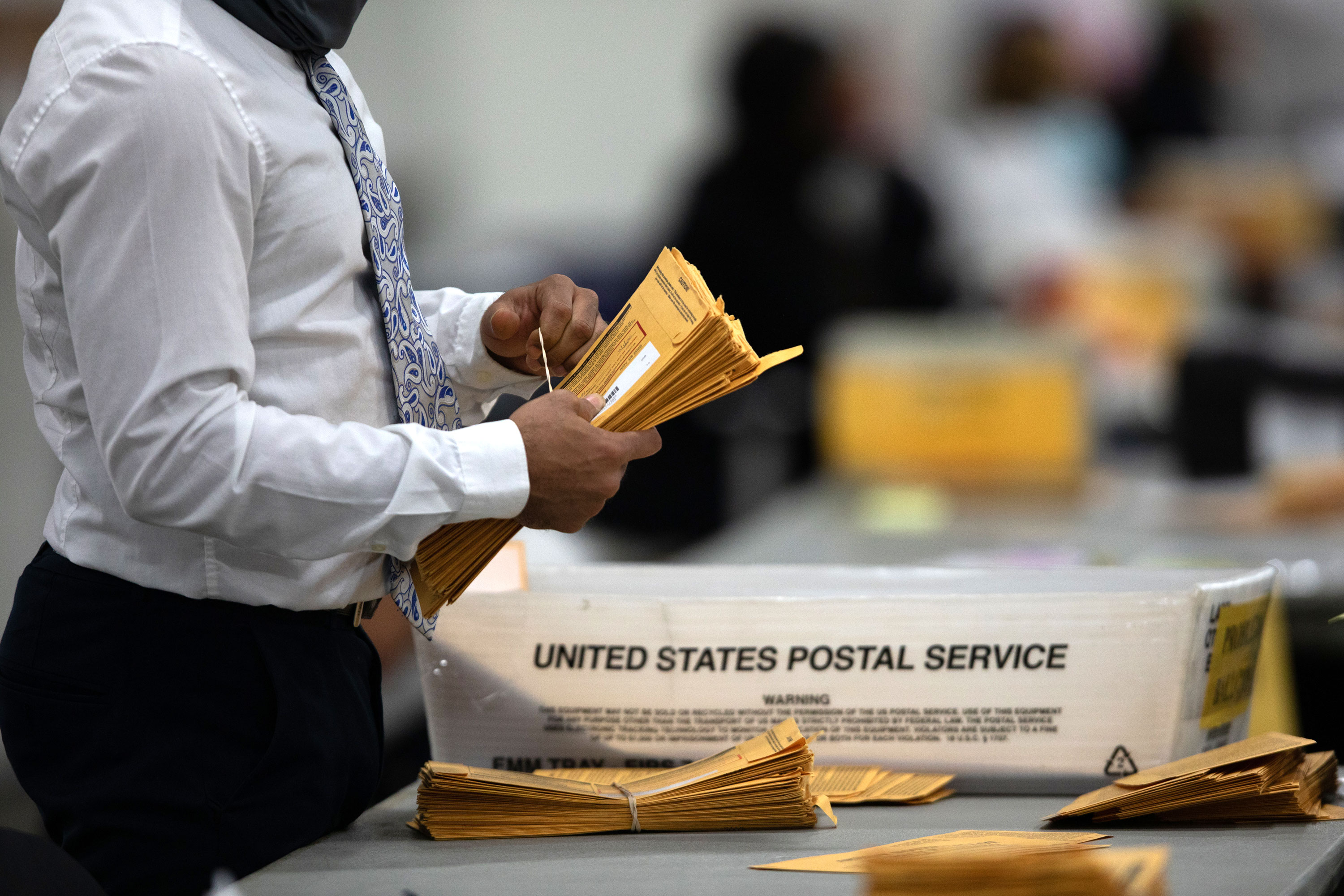
The Trump campaign is dropping its federal lawsuit in Michigan that alleged voting irregularities and asked the court to stop certification of the votes in Wayne County, home to Detroit.
In its filing, the campaign misrepresented the sequence of events surrounding the vote certification out of Wayne County, which was finalized Tuesday night. While the Wayne County Board of Canvassers initially deadlocked 2-2 on whether to certify the results, the four member board eventually unanimously agreed to certify the presidential race for Joe Biden.
Thursday morning’s filing wrongly claims that the Wayne County board “declined to certify the results of the presidential election.” Attached to the filing are affidavits from the two Republican board members who now claim that they were bullied into siding with the Democrats and want to now rescind their votes to certify.
But certification will move forward with the Board of State Canvassers set to meet on Nov. 23 to complete the final step of certifying the state’s votes for Biden.
The move to withdraw the federal lawsuit comes as the Trump campaign faces growing resistance and a number of defeats in courts around the country, including in Pennsylvania.
In Michigan on Thursday morning, a similar lawsuit brought by two individual plaintiffs alleging voter irregularities was also withdrawn.
GOP officials try to “rescind” their vote to certify Detroit’s results
From CNN’s Annie Grayer
The two Republican members of the Wayne County Board of Canvassers want to “rescind” their votes to certify the presidential results from the county, the largest in Michigan and home to the city of Detroit.
They both sent sworn affidavits to the county’s attorney, disavowing their previous votes to certify. But given that the deadline for county certification has already passed, it is unclear what legal remedy or legitimate argument these two Republican officials can make to formally rescind their votes and undo the certification.
Republican Chair Monica Palmer and Republican board member William Hartmann had initially voted against certification during their Tuesday night meeting, leaving the board in a 2-2 deadlock.
After hours of public pressure, and complaints that they were brazenly disenfranchising hundreds of thousands of voters from the majority-Black city of Detroit, the Republicans changed their votes and the certification passed unanimously.
Democrat Vice Chair Jonathan Kinloch said on Thursday that the county certification date of Nov. 17 is a definitive deadline and that board members’ votes cannot be changed after the fact. The GOP officials sent their affidavits to the county, but the action stops there. They have not filed any lawsuits to try to force the county to call a new meeting.
“There is no further action that can be taken in regards to the certification,” Kinloch told CNN.
Kinloch also shared that at the Tuesday night meeting, the board unanimously passed a resolution that would waive any future reconsideration, further discrediting the actions of Palmer and Hartmann.
Certification is usually a formality, but President Trump is trying to block or delay the process in key states as part of a longshot effort to overturn his election defeat through the Electoral College.
“Democracy can be messy”: Gen Z and millennial Republicans respond to Trump’s refusal to concede
From CNN’s Rachel Janfaza
Some Gen Z and millennial Republicans say that they are troubled by President Trump’s failure to concede more than two weeks after Election Day, citing the harm it could cause to American democracy and the example Trump’s behavior sets for young Republicans.
“I feel like Trump is attempting to subvert our democracy, and it’s very worrisome to see how many people are blindly supporting him. I find it really disappointing how Trump is blatantly going out of line with American values and going against objective facts, ” Ally Chun, an 18-year-old Republican from New York, told CNN.
Chun is, in part, concerned with the way Trump continues to spread misinformation online as well as the impact Trump’s failure to concede could have on young Americans.
While she still considers herself a Republican, Chun said she is “extremely disillusioned by the party” and hopes they can condemn and distance themselves from Trump’ actions.
Likewise, Chip Myers, a 21-year-old Republican from Arkansas, told CNN he is “really troubled,” by Trump’s “failure to concede.”
“President-elect Biden needs access to transition funds likely being held up due to Trump’s failure to concede, and he needs access to the [President’s Daily Brief] for the sake of national security. If presidents can get away with sabotaging their political adversaries’ presidencies like this, then I’m really worried about what that might do for our democracy in the future, especially if someone more competent than Trump is running the show,” Myers said.
Meanwhile, Gen Z GOP, a group of disaffected young conservatives who came together with hopes of building a new home for young Republicans earlier this year, says they are “moving on.”
“President Trump lost. End of story. We’re moving on. Gen Z GOP is focused on building a common sense Republicanism, a party with an orientation toward integrity and results, and emphasize conservative, common-sense policies over rhetoric that divides our communities,” Elle Kalisz, communications director for Gen Z GOP, told CNN.
But not all young Republicans feel this way and some agree with Trump’s decision not to concede.
Still, while these young Republicans say that Trump’s commitment to legal challenges is completely within his purview and demonstrates that he is a “fighter,” they aren’t yet convinced that the legal challenges will end up changing the results of the election.
Ryan Fisher, the 20-year-old chair of the University of Michigan College Republicans, told CNN that Trump’s refusal to concede is something he is still conflicted on.
“On one hand, I do see some instances of what [Trump] refers to as fraud or not counting votes. But my fundamental issue is even if he’s right, I don’t believe the winds would be sufficient to declare him the victor,” he said.
“I appreciate [Trump] seeking fairness in elections, and I appreciate him fighting against sort of unsolicited and unverified mail in ballots,” Fisher told CNN.
But Fisher also said that he is “pragmatically in favor or Trump’s concession at this point,” as he doesn’t believe the recounts produce enough of a margin of victory to push Trump to the necessary 270 electoral college votes needed to win.
Adam Brown, age 22 and the former vice chair of the Utah College Republicans, also believes Trump is a “fighter,” he told CNN.
“Given the fact that he was a United States’ political candidate and as President of the United States, he should continue to fight until he feels the results are properly reflected,” Brown said.
“He’s well within his rights to pursue all legal avenues and we have to wait until those avenues come to completion,” Brown said, adding that “democracy can be messy.”
And while Grayson Massey, 26 and the national committeeman for the Utah Young Republicans and former chair of Utah College Republicans, told CNN he agrees that Trump is within his legal purview to pursue all legal options, Massey added that even once those avenues have come to completion, he does not believe the results will change.
“Our Democratic colleagues would agree, we simply want to count every vote to certify that Vice President Biden or President Trump are in fact the legally elected President of the United States,” Massey said.



